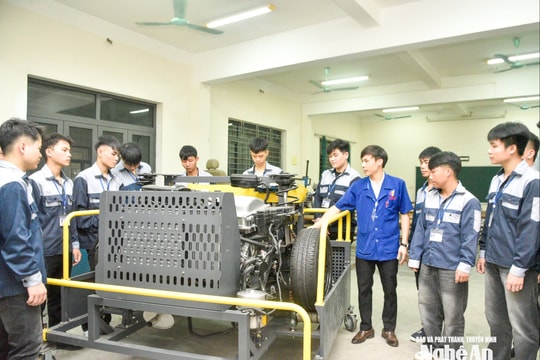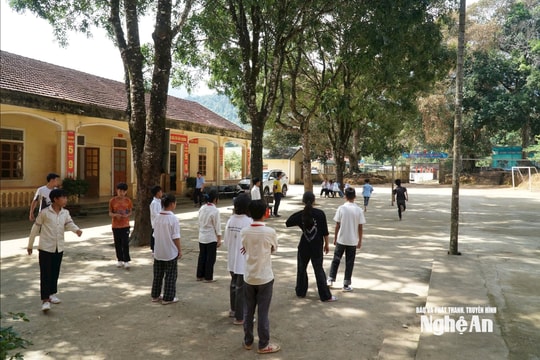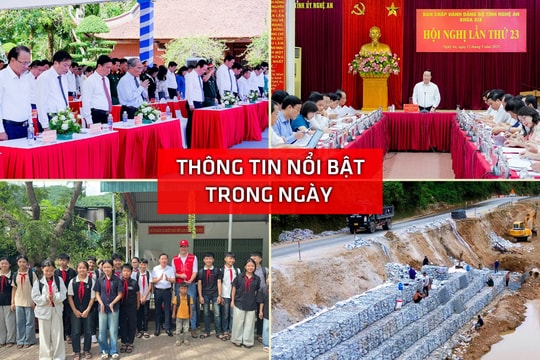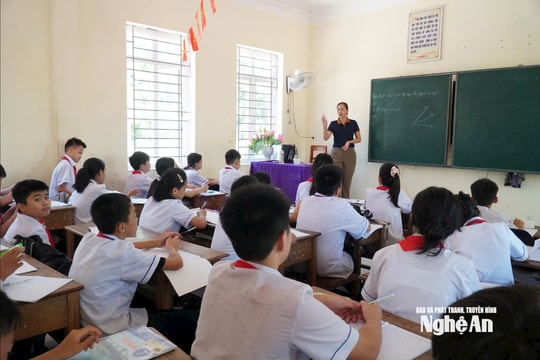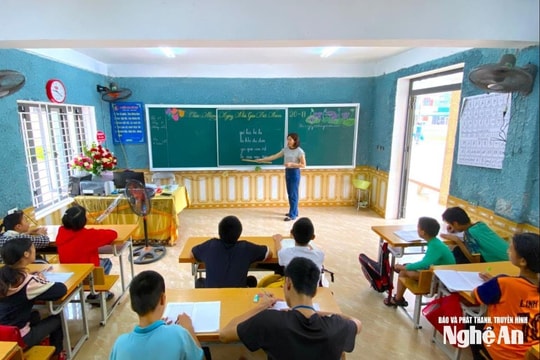Will there be appropriate priorities for teachers' salary levels?
National Assembly Chairwoman Nguyen Thi Kim Ngan expressed her opinion that there should not be a separate salary scale or highest allowance for the teaching profession.
Teachers' salaries must have incentives.
At the meeting of the National Assembly Standing Committee to give opinions on the Draft Law on Education Amendment on the afternoon of February 21, many opinions said that the Draft Law needs to institutionalize the Party's viewpoint on teachers' salaries, ensuring that teaching is a profession with high income, commensurate with the position and role of teachers in society.
The Standing Committee also proposed two options to seek the opinion of the National Assembly Standing Committee on this issue. The first option proposed that the revised Law on Education should stipulate a separate salary scale for teachers to ensure it is commensurate with the characteristics of the profession.
In option two, it is necessary to stipulate that the education sector allowance has the highest coefficient to ensure that teaching is a profession with a high income, commensurate with the position and specific role of teachers in education and in society.
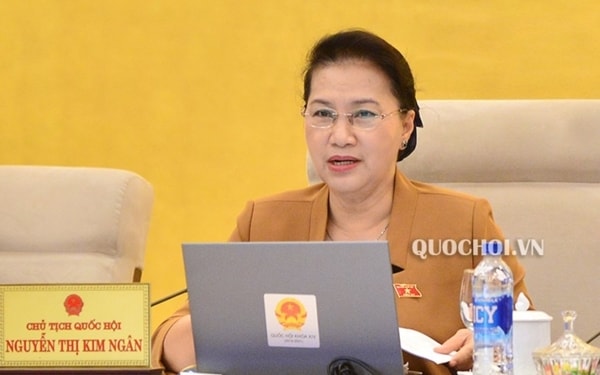 |
| "There should be no regulation that the teaching profession has the highest allowance" |
National Assembly Chairwoman Nguyen Thi Kim Ngan expressed her opinion that there should not be a separate salary scale for teachers. This is contrary to the spirit of Resolution No. 27-NQ/TW which has 3 salary scales.
In addition, it is not advisable to stipulate that teaching is the profession with the highest allowance. The National Assembly Chairman believes that the salary scale for teachers should have appropriate priorities.
Delegate Nguyen Khac Dinh also agreed that the proposal to give the teaching profession the highest allowance is not appropriate. In reality, there are many more difficult professions. Therefore, the option of teachers being given priority in salary scales and grades appropriate to professional requirements as prescribed by the Government is more appropriate.
Streamlining to avoid heavy academic psychology
Regarding regulations on career guidance and streaming, Vice Chairman of the National Assembly Phung Quoc Hien said that when students enter high school, there needs to be clear streaming.
“When entering high school, there is full high school as a development step towards university, and there is also high school combined with vocational training.”
According to Mr. Hien, in 2004-2005, there were high schools that set aside afternoons for students to study technical subjects. When they graduated after 3 years, they could have both a diploma and a level 3 technical worker certificate.
“That is also the right direction, creating a reasonable workforce, avoiding the situation of “too many teachers and not enough workers”. Vocational students can study in a bridging course, and if they want to improve their skills, they can study at a vocational college. That is the most reasonable way to help save human resources and finances for society.”
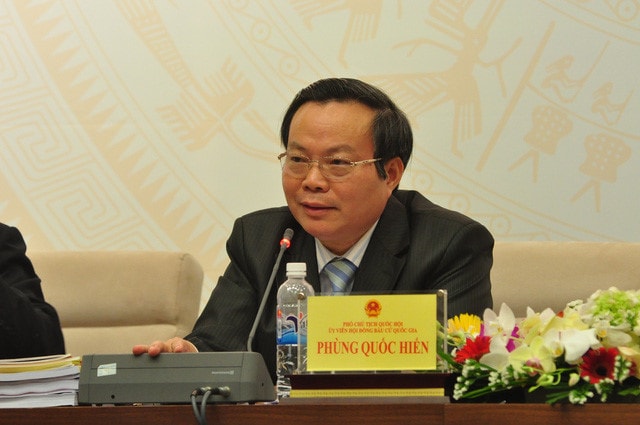 |
| Streamlining is the right direction, creating a reasonable workforce, avoiding the situation of "too many teachers and not enough workers". |
Meanwhile, Vice Chairman of the National Assembly Uong Chu Luu emphasized that the problem of student streaming is a very big one. If this problem is not solved, students will flock to universities and colleges.
Solving the problem of streaming is also for parents to determine if their children will continue to university or vocational school at a certain level, have a job, have an income and still be respected by society, avoiding the heavy burden of academic examinations that has lasted from the past until now.
Preschool children and public school students are exempt from tuition fees.
Regarding tuition policy, according to the drafting committee, there are many different opinions on this issue. In which, the majority of opinions agree with the regulation that 5-year-old preschool children, primary school students, and middle school students in public schools do not have to pay tuition.
For the public and private systems, the State will support tuition fees. There are also some opinions that tuition and other fees should be completely exempted for students who are eligible for universal education in schools of all types.
Regarding this content, the Government agrees with the opinion of the majority of the people and maintains the regulation: “Tuition is the amount of money that students must pay to cover part or all of the costs of educational and training services. The tuition fee level is determined according to the roadmap for calculating correctly and fully the costs of educational and training services as prescribed by the Government. For higher education institutions, it is implemented according to the provisions of the Law on Higher Education”.
Vice Chairman of the National Assembly Phung Quoc Hien agreed that there should be a tuition policy.
“The Constitution stipulates that primary education must be universalized. I think that tuition fees for primary education should be exempted. For non-public and private schools, we will provide support depending on the capacity and state budget. This level of support can be equal to the level spent for students in public schools.
For secondary school students, further calculations are needed. There may be exemption policies in remote, mountainous areas, while other places will depend on the actual local situation,” said Vice Chairman of the National Assembly Phung Quoc Hien.

